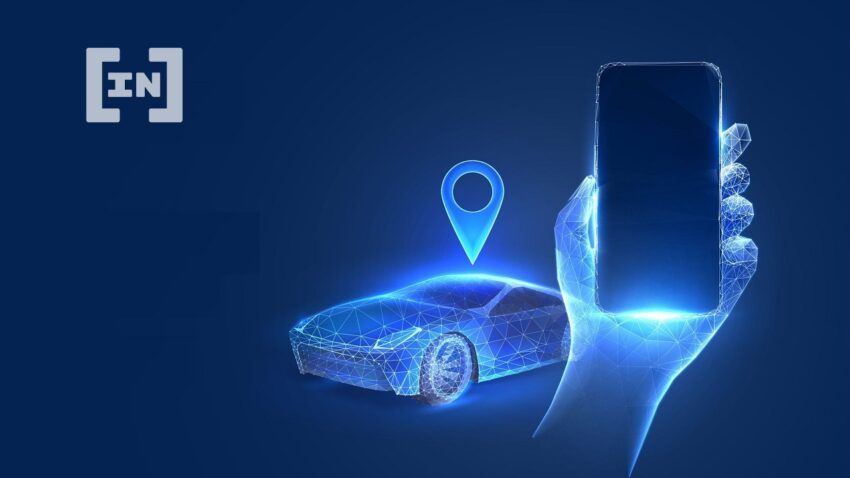The Machine Economy offers us a tantalizing future, says Till Wendler, co-founder of peaq. Like when you are driving your electric car, the vehicle will not only find you a free space, but pay with its own wallet, ready for when you roll up.
From tiny devices to robots and drones, machines will drive 70% of GDP growth in the global economy between now and 2030, according to PwC. The number of connected devices, known collectively as the Internet of Things (IoT), is quickly growing. Interconnected machines are taking over more functions across industries and in our daily lives.
The machine economy of things
The next stage of evolution for this interconnectedness is the Economy of Things (EoT). This is the point where machines’ economic agency rises to match their functionality – and blockchain offers the EoT the perfect home.
For example: In the IoT, a smart electric vehicle can monitor upcoming charging stations on its route and alert the driver if a space is free. In the EoT, the smart electric vehicle will provide the same alert to its owner, while also accessing its own digital wallet to pay for the charge… At least after it has jumped through all the hoops and loops associated with how fragmented the charging industry is, with suppliers preferring to provide services through their own designated apps.
Blockchain and other Web3 technologies are the perfect solution for that. They offer the EoT a neutral digital infrastructure alleviating a wide array of Web2 woes, from data privacy concerns to interoperability. In a Web3 Economy of Things, the connected electronic vehicle will pay directly to the digital wallet of the charging station, without the need for centralized financial intermediaries.
To achieve this vision, we need to turn to decentralized finance, or DeFi. Built on the blockchain, DeFi removes the need for middlemen from essential financial processes. It does this through the use of smart contracts written in computer code. It offers decentralized alternatives to traditional financial services, such as lending, borrowing, investing, and trading. While the total value locked (TVL) across DeFi protocols has plummeted amid the larger macroeconomic strain, a Web3 EoT is its best shot for a recovery.
Decentralized protocols, identities, and tokens
DeFi empowers people to choose how to leverage their assets without any input (or significant fees) from intermediaries. The Web3 machine economy aims to give people this same freedom when it comes to machines. It’s widely appreciated that the machine economy must be based on the blockchain in order to be decentralized and fair.
Permissionless blockchains provide the decentralized infrastructure needed for us to transfer assets and data with near-instant settlement and with high standards of security. Built on top of this, DeFi’s many services offer the necessary technology to build the marketplaces for machines to exchange value and services on. Cryptocurrencies themselves can act as the lifeblood of this system. All of these are essential components of the Web3 Economy of Things.
The machine economy: Other innovations
Many other Web3 innovations can add new value to the EoT. One example is the use of ‘self-sovereign identities’ (SSIs). These are tools designed to give internet users a portable identity which gives them complete control over their digital identities and any data they generate on the internet.
SSIs also have the potential to provide machines with unique identities that will enable a range of different capabilities. We call this concept Self-Sovereign Machine Identities (SSMIs), which serve as a global machine passport.
SSMIs are the digital identities we assign to machines and devices which identify themselves to people and to one another and to applications and dApps. We’ve seen in the past how Big Tech companies can collect all of our data to sell and turn a profit. This is with little recourse for individual users on their platforms.
Giving machines their own SSMIs allows them to communicate seamlessly with each other without the need for these intermediaries, thereby protecting our data from centralized entities. This in turn allows our machines to manage and share data and value faster, more freely, securely, transparently, and at a lower cost.

The role of NFTs in DeFi
Another DeFi innovation is also proving to have applications in the machine economy is that of NFTs (non fungible tokens). NFTs are unique digital assets that act as tokenized versions of items with real worldvalue. The holder of an NFT has a digital, verifiable record of their ownership on the blockchain. Expanding on this, a ‘Machine NFT’ is an auditable, immutable digital contract of ownership of a machine or a machine fleet. It allows anybody to verify that they own a machine or device.
By assigning machine identities, we are giving anybody the opportunity to create a Machine NFT of their own machines and devices. This is whether they own a fleet of autonomous taxis or an electric vehicle charging port in their driveway that they can share with their local community.
The value that can be extracted from these machines will go directly to the owner and will not require any input from third parties. Not only this, but we open up a new range of possibilities regarding NFT crowdfunding, lending and prediction hedging. This only scratches the surface of potential use cases.
The end result
As we innovate and create increasingly advanced devices, there is every possibility that, in the future, machines will occupy certain jobs and societal roles currently fulfilled by humans. McKinsey has estimated that one-quarter of the U.S. workforce may lose their jobs to automation by 2030. The evidence supporting this is growing. We’re exploring automated vehicles, launching the first unmanned grocery stores, and visiting bank branches where we conduct business only via kiosk.
As a society, we have a choice: we can either resist innovation and step backward. Or, we can embrace the new possibility for passive income and ownership that the machine economy will bring.
By establishing decentralized ownership of a machine that has the potential to earn and move real world value, in the form of data and cryptocurrency, we unlock new earning opportunities for ourselves. The use of DeFi tools is essential to making this advancement a reality.
We can’t allow this new ecosystem to be controlled centrally by a small group of corporations. We are only feeding into problems that already exist and continue to grant power and money to a select few. By integrating Web3 and DeFi applications into the machine economy, we can ensure that the right people have governance, control and ownership over these machines.
About the author

Till Wendler is the co-founder and CEO of peaq, the decentralized Web3 network powering the Economy-of-Things. An experienced leader within the blockchain industry and an early supporter of Ethereum, Till has long recognized the role that distributed ledger technology can play in disrupting major markets such as finance and the technology sector. He previously served as CEO of Axiomity AG, as well as Head of Operations at Advanced Blockchain AG, the first blockchain company to be listed on Xetra, the Frankfurt stock exchange. With Till’s leadership experience and blockchain expertise, peaq will be the driving force behind a new sustainable economic model that connects the real world with the power of distributed ledger technology.
Got something to say about the machine economy, DeFi, or anything else? Write to us or join the discussion in our Telegram channel. You can also catch us on Tik Tok, Facebook, or Twitter.
Opinions seen on this website should not drive any financial decisions from readers.
Disclaimer
In compliance with the Trust Project guidelines, this opinion article presents the author’s perspective and may not necessarily reflect the views of BeInCrypto. BeInCrypto remains committed to transparent reporting and upholding the highest standards of journalism. Readers are advised to verify information independently and consult with a professional before making decisions based on this content. Please note that our Terms and Conditions, Privacy Policy, and Disclaimers have been updated.


